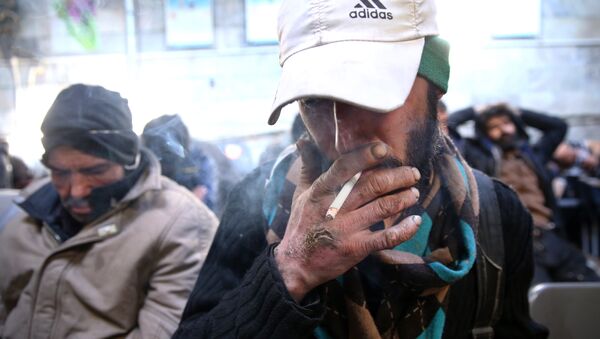"Packing prisons with drug offenders and rushing to send them to death row without due process in highly flawed trials will just worsen Iran’s justice problem while doing nothing to solve Iran’s drug problem," Human Rights Watch (HRW) Middle East Director Sarah Leah Whitson said in the statement.
The HRW and Amnesty International noted in their statement that some of the convicted offenders were not even guilty of their crime, but were nevertheless convicted due to improper court proceedings, refusal of courts to grant legal counsel, or fear to appeal.
The Rights groups called on Iran to condemn the execution of these 12 people, and establish an "official moratorium on executions", and focus on abolishing the death penalty in Iran.
"[The use of the death penalty] is abhorrent in any circumstance, but carrying out these executions would be particularly tragic given ongoing discussions in the Iranian parliament that could lead to the abolition of the death penalty for nonviolent drug offenses," Amnesty International research and advocacy director Philip Luther noted in the statement.
In Iran, the death penalty may be given in the case of trafficking, possession, or trade of as little as 30 grams of drugs like heroin, morphine, or cocaine.
Between January and July 2015, Amnesty International said that some 694 people were executed in Iran, compared to 743 executions in the previous year.
In 2016, the majority of executed Iranians were drug offenders. There are currently 5,000 people in death row for drug related offenses in Iran, the statement added, citing member of Iranian parliament Nassan Noroozi.
Never miss a story again — sign up to our Telegram channel and we'll keep you up to speed!



